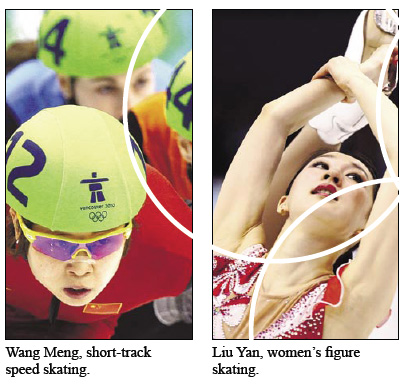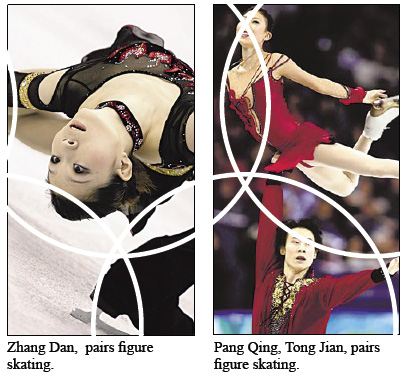Highlights
Gold standard for China
(China Daily)
Updated: 2010-03-01 09:43
 |
Large Medium Small |
Nation must look past Olympic glory to building its own strong sporting brands, say industry experts. Tang Yue and Craig McIntosh report from Beijing.
|
 Gold medalist Wang Meng (left) celebrates with compatriot Zhou Yang during the 2010 Winter Olympics. Wang won gold in the women's 1000m short-track final at Pacific Coliseum in Vancouver. [Agencies]
|


As the Vancouver Olympics draw to a close, China is again celebrating unprecedented sporting success on the world stage. Before this year, the country had won only four gold medals in the history of the Winter Games- within a matter of weeks it has more than doubled that tally.
Coupled with the success of tennis aces Zheng Jie and Li Na, who both reached the semifinals of the Australian Open in January, and the national team's victory in the East Asian Soccer Championship in Japan last month, sports and business analysts predict 2010 could prove a major turning point for the Chinese sports industry.
However, experts warned that only through investment in domestic professional leagues and, above all, by creating strong sporting brands will China ever really profit from such success on the world stage.

For all the passion of the fans and emotion on the field, make no mistake: Sport is big business.
In the United Kingdom and United States, the nations that boast the world's two biggest sporting brands - Manchester United in the English Premier League and New York Yankees in Major League Baseball (MLB) - sport contributes about 2 percent of GDP.
However, in China the sector contributed less than 0.7 percent of GDP in 2009, representing about $20 billion, said Yi Jiandong, a sports industry expert and professor with the Beijing Sport University, who cited estimates based on economic analysis.
For a nation with a 1.3 billion population and arguably the largest market in the world, improving the standard of teams and leagues, and boosting confid-
ence in "China-made sport", is the only way to make it a valuable commodity the nation can export.
"Exports of sports-related products fall mainly into two parts: sporting goods and sporting services, the latter including performing in continental and international competitions, the brokerage industry and broadcasting," explained Yang Zaihui, a professor on sports economics at the Central University of Finance and Economics in Beijing.












